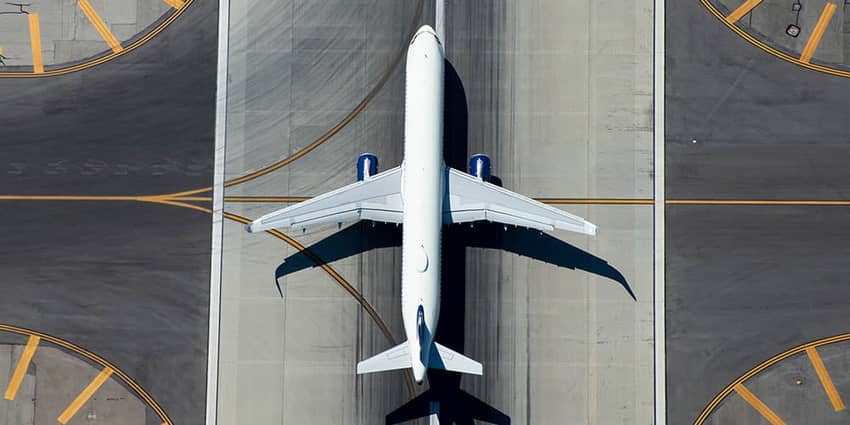Are you ready to take your ecommerce business beyond international borders?
Many shoppers expect international shipping, and many online stores are rushing to meet that expectation. The move to sell overseas also provides you with an opportunity to sell to a larger audience.
However, there are a lot of factors you need to consider before you start offering international delivery. You can't just put on some extra stamps or ship your parcel with any courier. There are invoices, customs information, and tax rules that you should wrap your head around. If you're importing goods, there's even more to think about.
Instead of visiting multiple government websites to read through these details, we've collated all the information you need to know before offering international delivery for your customers.
Ensuring Your Parcel Can Be Shipped Internationally
The best place to start is to ensure that the product you want to ship overseas can leave the country and arrive at its destination. You should also investigate if any specific licenses are required to export the item. You can find an exhaustive list of Prohibited and Restricted on our website.
To review prohibited items, start by choosing the destination country and the courier service you want to use. If your product is listed, you cannot ship it with Interparcel.
Scroll to the bottom of the page to find the restricted items, which are objects unsuitable for shipment with our services. It’s vital to know that if you send a parcel containing a restricted item, there may be surcharges, delays or confiscation by authorities. There are also no transit warranties or guarantees. For licenses, you’ll need to review the country of origin’s customs website.
Completing a Commercial Invoice
The most important document you need to complete for international delivery is the customs/commercial invoice. Filling it out incorrectly doesn't just result in delays, it will cost you more money. There are five items you need to specify:
- The country of origin, which is where the merchandise is from
- The exporter and consignee details, which are your name and address, as well as the buyers
- A detailed description of the item, which must include what it is, what it's made of, and what it's used for. This will help the Customs team process it
- Quantities and weights, which relate to the measurements of the product
- The purchase price of each item, which is how much the buyer paid for each individual product.
You can use a customs broker to help with the processing of the item. However, if you're shipping with Interparcel, the carrier you've chosen becomes the broker, and they will manage everything on your behalf. To help them out, be sure to include these extra details:
- A tariff code
- A certification of origin
- A copy of known Free Trade Agreements, if it's required
Understanding International Taxes
If you're looking to ship your parcels worldwide, then you're going to want to ensure you have a complete understanding of the various international duties and taxes prior to the booking. You'll also need to stay up to date with any changes that may occur.
For example, in 2021, the European Union changed its VAT rules. It removed the import VAT exemption and introduced an import one-stop-shop.
The situation is different in the US and in other countries too. However, when you choose the right international courier service, they can help walk you through all the necessary steps to ensure your item gets delivered on time and without any additional charges.
Importing Your Products
If you want to sell products from overseas in Australia, then you're going to want to take the time to learn about importing goods into the country.
Importing has many benefits, including reducing production costs, increasing revenue, and offering a unique product range that may not be available here. Australia imports around $187 billion per year, which includes not only oil but also smartphones ($8.5 billion), computers ($7.2 billion), and delivery trucks ($7.5 billion).
Much like exporting, you'll need to understand tariffs and taxes you may have to pay. It's also vital to correctly label and package products before they get sent here. Thankfully, Interparcel are specialists in importing goods, and you gain the experience of using expert carriers like TNT and UPS to help clear your items when they arrive.
Handling Freight Disputes
When you're importing items via freight shipping, sometimes issues may occur. You might receive additional charges you weren't expecting, or that may not be correct. These can occur for a few different reasons, such as:
- A misdeclaration of the dimensions and weight of your parcel
- Additional customs duties and taxes that the importer hasn't paid
- A dispute around GST
- The item wasn't packaged or labelled appropriately and requires additional handling from the carrier
Interparcel can assist if a freight dispute arises. You can send supporting evidence to us instead of the carrier, and we can email you an invoice to pay any outstanding charges quickly and easily.
How to Make International Delivery Easy
The easiest way to navigate international delivery is by using the Interparcel Shipping Manager. We send thousands of packages daily to over 250 countries and territories using the cheapest and fastest parcel delivery services. Some of our carriers are internationally recognised solutions, such as UPS, TNT, and FedEx.
The best part is that the Interparcel Shipping Manager is free to use for everyone. Head over to this page to find out more and to start using it today.










 Facebook
Facebook Twitter
Twitter Instagram
Instagram Linked In
Linked In YouTube
YouTube